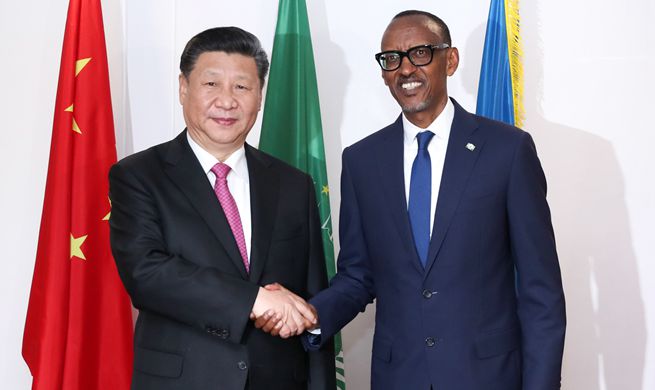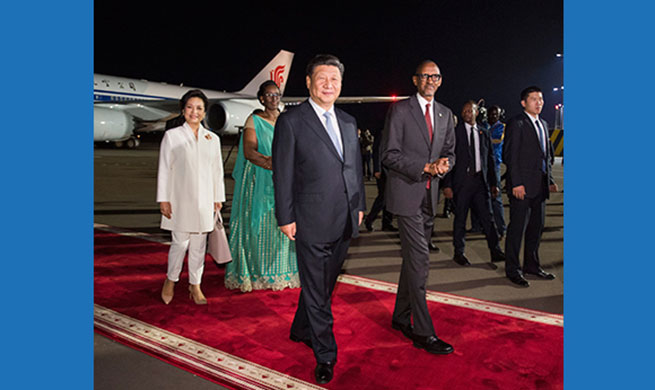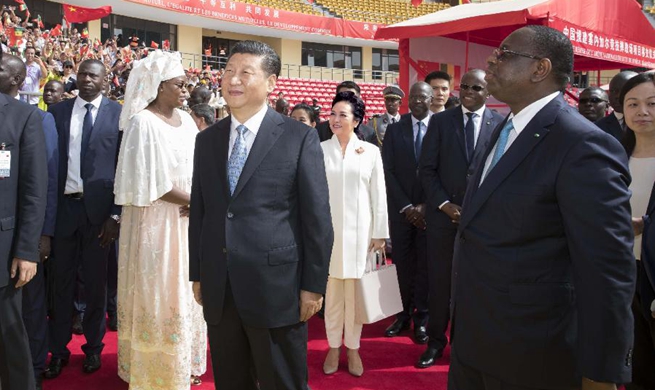LONDON, July 23 (Xinhua) -- British manufacturing has enjoyed good performances over the past 12 months with strong growth driven by devalued sterling and a buoyant global economy, but uncertainties over Brexit and the U.S. trade war are danger points for the coming year, an analysis from EEF, the manufacturers' organization published on Monday showed.
The next year sees the continuation of buoyant growth threatened by the risk of a disorderly Brexit, the emergence of global trade tensions and the relatively weak investment picture caused by Brexit uncertainty.
"We have had a good year of growth reflected in all the regions," EEF chief economist Lee Hopley told Xinhua in an interview.
"The drivers of that growth are the pick-up in the global economy, improvement in commodity prices and an increase in investment around the world -- that means all sectors have had improved output and improved order books."
But Hopley said the strong pick-up in orders and exports had not been matched by a corresponding increase in investment.
"Caution has been the watchword over the past year as we continue to operate with a real lack of clarity about the Brexit end game," she said.
Hopley said that the devaluation of sterling immediately after the Brexit referendum vote in June 2016 had been a boon to some exporters but its effect had waned towards the end of the current 12-month period.
"The devaluation after Brexit has been a benefit for many exporters, not all, but towards the end of the year that benefit has been fading," said Hopley.
By destination, a number of regions have strong exposure to the EU, making them potentially vulnerable to a hard Brexit.
These include Wales, where two thirds of all manufacturing exports go to Europe (60 percent to the EU), the North East (59 percent to the EU), East Midlands (54.9 percent to the EU) and East of England (52.5 percent to the EU).
Hopley said: "Brexit is a key uncertainty. There is varying exposure to EU markets depending where you are in Britain. The impact, from a trade point of view, depends on where you are in the country but Brexit uniformly weighing on investment intentions, and that is a weak point in our survey across all parts of the country in the past year."
Other regions have greater exposure elsewhere, with the North West being the biggest exporter to the Middle East and North Africa, and the West Midlands being the biggest exporter to Asia, Oceania and the U.S..
The uncertainty at the post-2019 trading relationship with the EU is being compounded by rising global trade tensions, with particular concerns for metal manufacturers in the West Midlands and Yorkshire and Humber, as a result of U.S. tariff war.
"There are risks of escalating trade tensions prompted by U.S. actions. The metals industry, especially in Yorkshire and Wales, might be affected. And if the U.S. tariffs hit automotive industries across Europe that will hit the Midlands and the North West of England," said Hopley.












